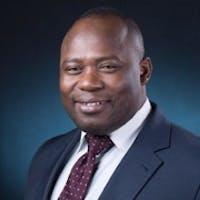Apply linear algebra concepts to solve real data science problems through a comprehensive capstone project using Python and PCA.
Apply linear algebra concepts to solve real data science problems through a comprehensive capstone project using Python and PCA.
This course cannot be purchased separately - to access the complete learning experience, graded assignments, and earn certificates, you'll need to enroll in the full Linear Algebra for Data Science Using Python Specialization program. You can audit this specific course for free to explore the content, which includes access to course materials and lectures. This allows you to learn at your own pace without any financial commitment.
Instructors:
English
What you'll learn
Apply data wrangling techniques to prepare datasets
Implement PCA for dimensional reduction
Create and run regression models effectively
Interpret model results and present findings
Complete a comprehensive data science project
Skills you'll gain
This course includes:
0.75 Hours PreRecorded video
5 peer reviews
Access on Mobile, Tablet, Desktop
FullTime access
Shareable certificate
Get a Completion Certificate
Share your certificate with prospective employers and your professional network on LinkedIn.
Created by
Provided by

Top companies offer this course to their employees
Top companies provide this course to enhance their employees' skills, ensuring they excel in handling complex projects and drive organizational success.





There are 4 modules in this course
This capstone course combines theoretical knowledge with practical application in data science. Students work on a comprehensive project that involves data wrangling, dimensional reduction using Principal Component Analysis (PCA), building regression models, and interpreting results. The course focuses on applying linear algebra concepts to solve real-world data science problems using Python.
Introduction to Specialization and Course
Module 1 · 32 Minutes to complete
Data Wrangling & Using the PCA Function
Module 2 · 3 Hours to complete
Run Your Model and Interpret Your Results
Module 3 · 3 Hours to complete
Peer Review: Interpreting Results Using Your Model
Module 4 · 1 Hours to complete
Fee Structure
Instructors
Mathematics Education Pioneer and Diversity Champion
Dr. Dennis Davenport has built an impressive career dedicated to advancing mathematics education and diversity in STEM fields since earning his Ph.D. from Howard University. His journey includes significant contributions at Miami University, where he founded the Summer Undergraduate Mathematical Science Research Institute (SUMSRI) targeting underrepresented groups and women, and established the Mathematical Enrichment Program (MEP). He directed the Miami University program of the Ohio Science and Engineering Alliance (OSEA), part of the NSF Louis Stokes Alliance for Minority Participation program, and served as a Visiting Scientist at NSF (2000-2002, 2009-2011) and as a Visiting Professor at the United States Military Academy (2004). Currently at his alma mater Howard University, he serves as Graduate Director and Associate Chair in the Mathematics Department, chairs the American Mathematical Society's Policy Committee on Equity, Diversity, and Inclusion, and since 2018 has directed an innovative REU program combining summer research with year-round academic engagement for students.
Data Scientist and Mathematical Biologist
Dr. Moussa Doumbia combines expertise in data science and mathematical biology as a faculty member at Howard University, where he earned his Ph.D. in Mathematics. His research spans multiple disciplines, focusing on modeling infectious diseases and developing mathematical models for biological systems. As a data scientist, he specializes in deep learning, big data engineering, predictive modeling, and natural language processing. His academic work includes developing parametric models for studying malaria incidence in Mali and Nigeria, while his teaching encompasses both traditional mathematics and modern data science applications. A multilingual scholar speaking English, French, Mangding, and Spanish, he brings diverse perspectives to his work in mathematical biology and data analysis. His expertise extends to creating efficient equations and models that utilize field and laboratory data, contributing to both theoretical research and practical applications in disease modeling.
Testimonials
Testimonials and success stories are a testament to the quality of this program and its impact on your career and learning journey. Be the first to help others make an informed decision by sharing your review of the course.
Frequently asked questions
Below are some of the most commonly asked questions about this course. We aim to provide clear and concise answers to help you better understand the course content, structure, and any other relevant information. If you have any additional questions or if your question is not listed here, please don't hesitate to reach out to our support team for further assistance.





